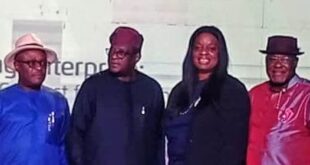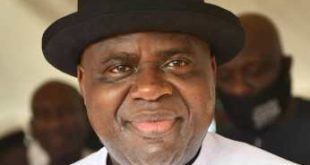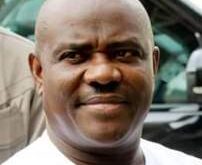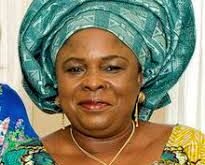By Hamzat Lawal
If there is one thing on which political thinkers all over the world agree on, it is the idea that a leader has no glowing legacy or historic impact unless he or she has a robust successor plan. The baton of personalized political principles must be transmitted to a prepared protégé.
However, present day democratic realities have made the world reach a consensus that the best replacement plan is via institutions and policies. The best leaders, therefore, are the ones who, while in office, molded these factors in a way that the next generation finds in them tools that make service to country a seamless exercise.
Now that the Age Reduction Bill, popularly referred to as the Not Too Young To Run Bill, has received affirmative votes from more than twenty-four State Assemblies of the Federation, there is no person on a better advantageous footing to leverage the historic significance of this momentous bill than our own President Muhammadu Buhari.
For those that are yet to know, the Not Too Young To Run bill seeks to reduce the age for running for elective offices in Nigeria. It was first passed by the National Assembly in a celebrated vote in July 2017. Thus, the amendment as passed by the National Assembly and State Assemblies reduces the qualifying age of the President from 40 to 35; House of Representatives from 30 years to 25 years and State House of Assembly from 30 years to 25 years. The age for the Governor and Senate was retained at the current 35 years.
Undoubtedly, the passage of the bill by the states is very significant, not only because of the extraordinary speed, but because of its legal and moral implications.
With this passage, the bill has met the constitutional threshold prescribed by Section 9 (2) of the 1999 Constitution of the Federal Republic of Nigeria (as amended). The Section stipulates that any amendment to the constitution must be approval by at least 24 State Houses of Assembly.
Moreover, given that the chambers of the State Assemblies are the very representatives of the thousands of village squares and the decisions that emanate from them in the nooks and crannies of the nation’s localities, we can assume that the grassroots have spoken. Truly, the masses of Nigeria are on the side of the youth!
What is more, a particular incident in one of the State Assemblies demonstrated that #NotTooYoungToRun is a movement that holds the best of promise not only for young people, but for every guardian of our young democracy. The interesting development transpired at the Taraba State House of Assembly when, having earlier voted against the Bill on 20th December, the House reversed itself on Monday 19th February, and passed the Age Reduction Bill. It was an overwhelming turnaround, as 22 members voted YES while 2 abstained.
I believe, therefore, that it is as gladdening to every Nigerian as it is to me, that we as a people have written our name in gold by showing that political inclusion is possible in our clime.
Nevertheless, with the unprecedented feat recorded so far, the world now seems to be holding its breath as it watches the ball roll over to President Buhari, who is expected to assent to the constitutional amendment. Once the President gives his assent, the bill becomes law. Young people can then run for political office even in the next general elections in 2019.
To be candid, because of #NotTooYoungToRun, President Buhari has a date with destiny. Throughout generations past, men and women in positions of power have rewritten history by singular acts of valor not with the sword but with conscious offerings enacted simply to build bridges that ushered in a new paradigm in socio-political fundamentals.
The peculiarity of a government that came riding on the mantra of “Change” is that Providence has offered it an opportunity to prove its own spirit, as change is a word that signifies an age-input parameter. Posterity can only be kind to soldiers who never reneged on their own revolution. Could it be, that The Almighty has offered this Administration a reason to properly hoist its own flag?
Of course, the #NotTooYoungToRun is a movement that enjoys an emotional and political acceptance across all divides. Hence, in signing the Age Reduction Bill, Buhari could find his finest hour.
But importantly, there are three reasons why President Buhari must take advantage of this opportunity. Firstly, he was recently crowned as Africa’s Anti-Corruption Champion by no other than the African Union. What I see in this momentous coronation is the potential for an apotheosis when the president takes advantage of the Nigerian youthful population. Nigeria, being the most populous country in Africa, has a ready-made field for Buhari to mainstream his anti-corruption ethos when he looks towards tomorrow and the youths he will raise to continue the battle he has initiated today.
In signing the Age Reduction Bill, I believe the president will be saying to those that made him the African Anti-Corruption Champion, “I am ready to make politics in Nigeria as inclusive as it can be, because I need to catch them young and train them when they are still trainable. I want to show other African leaders who are still hesitant, that the real Anti-Corruption fight is in the political selection process.”
Secondly, President Buhari served Nigeria as a former military Head of State at the youthful age of 42, and so could easily become the poster boy for generational political transition.
By assenting to the bill, he will be birthing a new era in Nigerian politics, in scoring the psychological goal that his comeback to politics which he was forcefully ushered out decades ago is, perhaps, a mission to reignite the youthful patriotism that motivated him to intervene in politics in the first place. This time around, by signing the Bill, he would be taking the pains to fulfill the democratic and legal processes that mainstream Nigerian youths with similar patriotic drive, for good.
Thirdly, immediately after the passage of #NotTooYoungToRun Bill in over 24 States as constitutionally required, something remarkable happened as the British High Commissioner to Nigeria, Paul Arkwright immediately took to his official Twitter handle to urge President Buhari to assent to the bill as soon as it was transmitted to him by the National Assembly.
What I saw in this development is that all eyes are on Nigeria. Given that many countries of the world do not give young people the opportunity to play a part in political governance, Nigeria is surely becoming a bastion of modern democratic best practices, with leaders that are determined to make a difference. The diplomatic community, and the global society are now waiting for our president to put an icing on the cake by demonstrating a commitment to inclusive democratic ideals. This is because by taking concrete steps to address political inequality and harnessing demographic dividend, the president sets the stage to take advantage of our country’s teeming youth population which if not properly and creatively engaged could equally turn into a demographic disaster.

Hamzat Lawal is an activist and currently the Co-Founder/Chief Executive of Connected Development [CODE]. He is working to build a growing grassroots movement of citizen-led actions through Follow The Money for better service delivery in rural communities. He is also a Leader of the Not Too Young To Run Movement. He tweets via @HamzyCODE
 PH Mundial – Port Harcourt Online Newspaper News Across The Region
PH Mundial – Port Harcourt Online Newspaper News Across The Region




